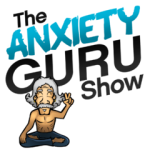 For most people, information about psychotherapy, or any mental health treatment, is a mystery.
For most people, information about psychotherapy, or any mental health treatment, is a mystery.
People often have preconceived notions that they will be required to delve into their past but not sure why, will have to take medication, and often figure that they don’t know best and need their therapist to tell them.
Psychoeducation refers to being educated about a psychiatric/psychological condition, whether one is a patient, a family member, or someone not in treatment but interested in learning about a particular topic. Ideally, psychoeducation is part of the standard of care that is provided by therapists or others in the mental health system.
I take it one step further: Collaborative Psychoeducation. It is the education plus incorporating it as a part of treatment so a patient and family can use the information to be more actively involved in decisions about treatment. The collaboration becomes an open dialogue.
My view: accurate information translates into a sense of control for people. If they are informed about the therapy they are in, what to expect, the condition they’re struggling with, medications, side-effects, whatever–they will be more actively involved in their own treatment, and this will likely improve their response to treatment.
Therapy is about change, and for lasting change people must find ways to make it meaningful and worth more than maintaining the status quo.
Most people view anxiety as an emotion or feeling, which is true but only part of the story. When I talk to people about anxiety I help them see that yes, they have anxious feelings, as well as anxious thoughts and behaviors. In many respects, it is focusing on changing the thoughts and behaviors that will have the biggest impact on diminishing the emotional suffering.
A classic example of anxious thoughts is worrying. Worries are thoughts that people go over and over in their heads. The more worry, the more anxious feelings. The “what ifs” of worrying are toxic because people start believing them, despite the fact that there is little or no evidence.
Anxious behaviors? Number one is avoidance: stay away from something or a dreaded task, or isolate from people. In the short-term anxious feelings may subside; unfortunately, avoidance doesn’t improve the situation, it only puts it off for another day and may even feel worse.
In the online Flexible CBT training program that I developed at McLean Hospital, an affiliate of Harvard Medical School, to help clinicians work more effectively with patients, there is a section focused specifically on Collaborative Psychoeducation for anxiety and specific skills to manage it.
People with anxiety often feel out of control. We get to the heart of the matter by helping people “control what they can control” to get them started moving in the right direction to manage their anxiety to improve their functioning and enhance their quality of life.
Edmund C. Neuhaus, PhD, ABPP
Founder, Atheneum Learning
https://www.atheneumlearning.com/flexible-cbt
Earn CE Credits for High Quality CBT Training
Are you a CIGNA or AETNA provider?
Dr. Edmund C. Neuhaus, founded Atheneum Learning in 2009 to fulfill his vision to deliver high quality Cognitive Behavioral Training (CBT) for everyday clinical practice to professionals and students worldwide.
After 20 years at Harvard Medical School and McLean Hospital, where he trained hundreds of interns and treated thousands of patients, he has developed an online CBT training course based on a pragmatic and effective patient-driven approach that is perfect for clinicians treating depression, anxiety, PTSD, TBI, and combinations thereof.
You can learn more about how you can earn 20 CE credits for the Flexible CBT course at: https://www.atheneumlearning.com/flexible-cbt/
Atheneum Learning:
Atheneum Learning has developed high quality trainings and resources in the best evidence-based approaches of cognitive behavioral therapy (CBT).
Our focus is to support clinicians to learn skills that are immediately relevant to everyday practices in order to make them more effective with patients and improve treatment outcomes.
Our featured online training, Flexible CBT, will earn 20 CME/CEU Credits from McLean Hospital, an affiliate of Harvard Medical School.





I completely agree with a lot of this, particularly the issue of education leading to a sense of control, and not just for the patient but for the whole family. (Or support system.)
Good read, thanks for posting, Paul.
Hey Bryan, I totally agree. I think it’s a great message. Education is the key to unlocking the solution for sure. It can take time which is why I think a lot of people get frustrated with the healing process but it’s really worth the effort.
Hey Paul, education is crucial in diminishing the affects of anxiety. The correct information, from a reliable source can be an invaluable part of the healing process. The internet is filled good information and just as much misinformation, so it is up to the individual to actively seek the truth using the exact methods you described above.
Thanks for being the guide, Robert